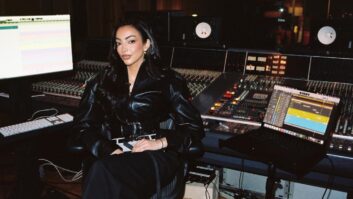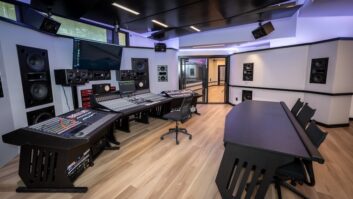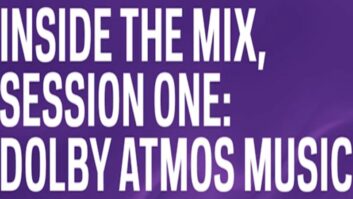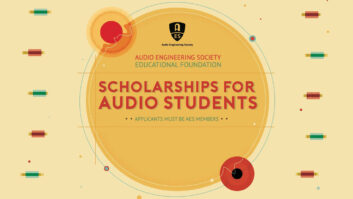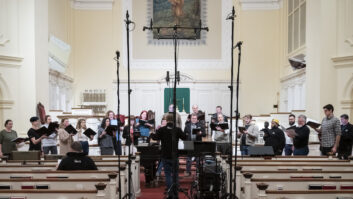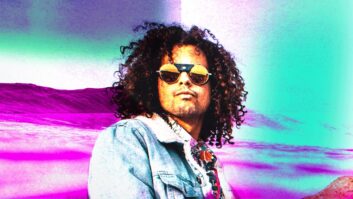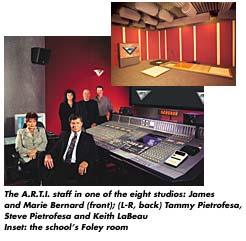
These days, it seems like audio engineering schools are opening
their doors in virtually every major market. While there used to be few
programs to choose from, multitudes of facilities now compete for
students’ business — and education. In such a rapidly developing
market, it is important to recognize those schools that have survived
technology’s changing face and maintained their reputations. Perhaps no
one understands how to endure being in the field of audio engineering
education like James Bernard.
The president and founder of the Audio Recording Technology
Institute (A.R.T.I.), Bernard opened one of the country’s first audio
engineering schools in New Jersey in 1969. He started with a single
studio and five students, but it wasn’t long until he decided to expand
his curriculum and move to New York in 1973. In 1990, he expanded again
by launching a second A.R.T.I. campus in Orlando, Fla. This newest
endeavor continued to build on A.R.T.I.’s solid reputation of quality,
comprehensive, hands-on education and has already proven itself to be
successful. “All our classes are filled, all of the time,”
says Bernard.
A.R.T.I. Orlando’s campus hardly resembles Bernard’s original 1969
facility. With three buildings and eight studios stocked with
cutting-edge gear — including an SSL Axiom console, Pro Tools
HD|3 workstation, and JBL 28P mains, M&K MPS2525 Tripole, JBL LSR
12P subs and Genelec 1029 monitors — A.R.T.I. Orlando was
designed with an eye to the future of audio production. During an
intensive 11-month course, students learn everything from tracking to
mixing, MIDI to graphics and music to audio for Internet applications.
For Bernard, the key to ensuring a quality education that covers such a
diverse range of topics is class size. “Six is our maximum per
class,” says Bernard. “We keep it small on purpose to give
them lots of hands-on experience.”
The wealth of practicum-style classes and the intensity of the
course work is what Bernard believes makes his program so valuable for
graduates. “We try to sift out the people who aren’t really
serious,” says Bernard. “We want the people who really want
to do it, and who show the right initiative and attitude.”
For those students with the desired determination, A.R.T.I. has
taken one more step toward offering quality education at a reasonable
price. In March, A.R.T.I. Orlando opened a newly certified THX pm3 Mix
Theater, becoming the first audio institute in the U.S. to offer a
THX-certified educational environment. To Bernard, this step was
inevitable. “In the THX pm3 Mix Theater, precise control of every
aspect of the mix can be achieved through the incorporation of the
highest standards of room design, equipment requirements and speaker
placement,” says Bernard. “The superior sonic experience in
a THX theater environment is one you’ll never forget.”
A.R.T.I. committed to the process of becoming THX-certified over a
year-and-a-half ago, before Bernard even began to design the new space.
A.R.T.I. Orlando’s director, Steve Pietrofesa, took it upon himself to
design the mix theater with THX standards in mind each step of the way.
“It’s a daunting process, simply because of the amount of time
that went into it,” says Pietrofesa. “There was a lot of
math that went into getting it right.” The design process took
about three months, with construction completed in the fall of 2002.
“We designed it and then [THX] recommended the placement of the
loudspeakers, although that didn’t necessarily guarantee
certification,” says Pietrofesa. “It’s part of the nature
of room design that you use software and all of your knowledge and
understanding. When it’s all said and done, you still have to tweak it.
But in this case, we got it right out of the box. We were certified on
the first try.”
To Bernard, deciding to build the THX theater on the Orlando campus
rather than the New York campus was simply a matter of market.
“Most people who graduate from my studio in New York want to end
up in a music studio,” says Bernard. “But when our students
graduate from the program in Florida, they have already been working
and making contacts in the Orlando area. There are a lot of venues and
attractions and post houses in Florida, so most of the people who
graduate end up working in those facilities.”
Building the THX-approved mix stage for students has been worth the
effort. “We get a tremendous response from the students when
they’re in the room,” says Bernard. “When students know
they’re going through a course that’s recognized by such a prestigious
company, it’s a great feather in their cap.”
